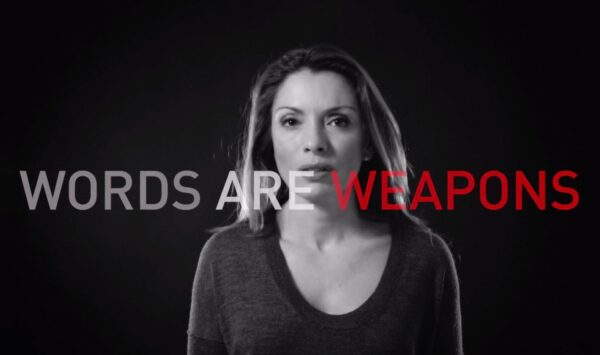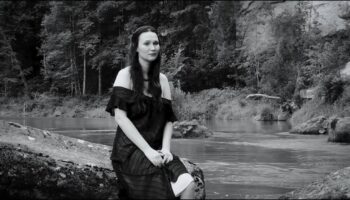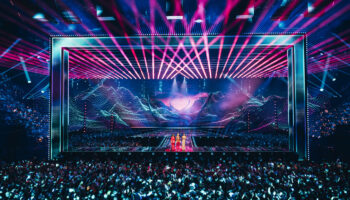The Greek-Swedish journalist Alexandra Pascalidou, released a heartbreaking video on her social media accounts. It has generated much interest across the Internet, as she is touching very sensitive issues with her experiences of her early years in Sweden as a migrant.
About the video
In a video of 3,5 minutes length titled Fight for democracy she narrates unpleasant stories experienced when she moved to Sweden, where she and her family were threatened of their lives if they don’t leave the country.
She talked about her first days at work there and about the racism that she received. She was often the victim of insults, threats to be killed via heinous ways and even to be gang raped. As she says, she couldn’t do anything to cope with it, because everything was anonymous. The most formidable she states is that all these words echo in her mind even today. Unfortunately, she was not the only person to be threatened this way but almost all migrants and refugees in Sweden during those years.
However, despite the difficulties, she is now thankful to the country for all the chances she gave her to study, to work and live as equal to equals.
Below you could watch the journalist’s video Fight for democracy, from her official Facebook account:
https://www.facebook.com/pascalidou/videos/1603250653033399/
Discussion with Alexandra Pascalidou
After the uploading of the video, ESCToday had the honour to speak with the journalist and ask her a few questions about the video she published and how relevant her narrations are to today’s reality:
What is the main reason for your video to be released these days? Is there any particular reason or is it the far right movement rising in Europe?
This is unfortunately nothing new for migrants, minorities, women, people from LGTBQ-community etc. Verbal violence, hate crime and attacks are common around Europe but I would say that it has escalated with social media where many people are being harassed and targeted on a daily basis. As a human rights-activist and journalist I receive many messages from people witnessing what I’m talking about. I’m one of millions that have to handle humiliation, hate and threats.
A couple of months ago I was invited by the EU Commission and vice president Franz Timmermans to give a speech on the topic. I’m happy to address the issue and ease the pain for all these people that are shamed, blamed and often isolated. I’ve been fighting for diversity, democracy and pluralism during my whole life. The last years things got worse. It’s like somebody opened Pandoras box – to use a Greek mythological metaphor. Today we have powerful politicians normalising hatred, racism, sexism, homophobia, islamophobia, antisemitism by calling it freedom of speech. But it’s not. Freedom of speech has its legal limits. And we have to respect that and make sure every single citizen is able to express him- or herself without fearing for his or her life.
It’s like a molotov cocktail of far right extremism, ultranationalism and religious radicalism spreading and thereby threatening equality and human rights.
This year’s Eurovision has the tagline “Celebrate Diversity”. In your opinion, the contest does indeed celebrate diversity? And do you believe this is somehow linked with the political situation in Europe?
The Eurovision Song Contest has been an oasis for diversity and pluralism. It has embraced cultures and talents even outside the strict norm and that’s the reason why we all love it. It gives so much happiness to millions around the globe. It’s a great opportunity to demonstrate the beauty of diversity and cross-cultural cooperation. But we have to celebrate diversity even outside the contest and beyond it. We have to celebrate diversity in our daily lives. We have to raise our voices even if we can’t sing and step up even if we can’t dance and qualify to that magic stage.
Sweden has played a key role in the migrant crisis which happens these days. How much have things changed since your childhood?
I’ve written books and articles about how Sweden has changed since my childhood but briefly I can say I’m proud to live in a country that gave me, and hundreds of thousands of migrants and refugees, the chance to live in peace, to study and make a career. Racism, discrimination and segregation is a huge challenge and a problem not only for Sweden but the whole of Europe and politicians haven’t done enough. I’m sad to see that Europe lacks in solidarity towards refugees, and the crisis that hit Greece and Italy with thousands of refugees living under hard conditions, but also countries that deny to take their responsibility. It’s time to cooperate across the borders and show the so much needed solidarity. We have to fight the digital darkness that is poisoning people’s lives only because they for some reason don’t fit in to the narrow minded norms.
Alexandra Pascalidou was the Greek commentator for ERT during Eurovision Song Contest 2005 in Kyiv and also the Press Center presenter in Malmö, during the 2013 contest. You can follow Alexandra Pascalidou on her social media accounts of Facebook, Twitter and Instagram. Also more information about Alexandra’s books, articles and activism, you can find on her official website pascalidou.se
Editor’s note: The Eurovision Song Contest can always be a great chance to unite all countries and people of Europe, far from any reason that divides them. We would like to thank Mrs Alexandra Pascalidou for this interview




